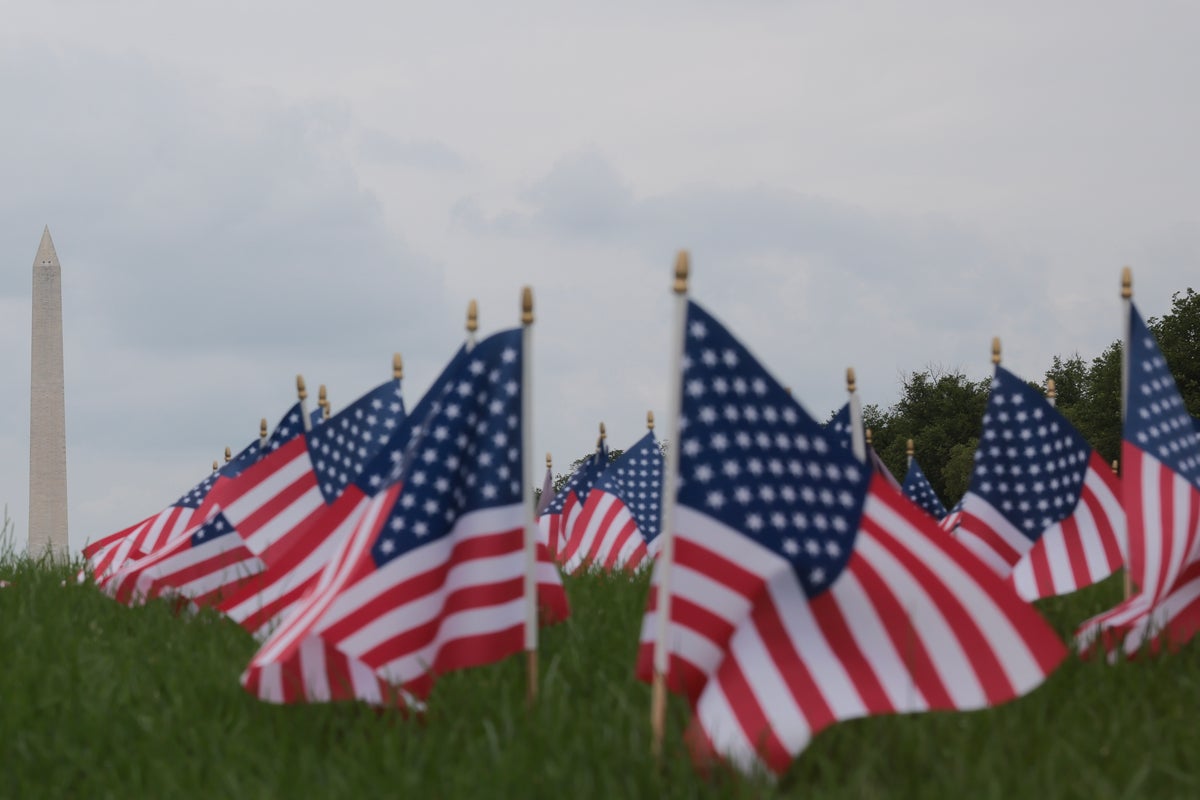
National pride in America has hit a record low, with Democrats and independents feeling less prideful in the country than ever, a new Gallup poll says.
Only 36 percent of Democrats say they’re “extremely” or “very” proud to be American, while 53 percent of independents said they were, according to the poll conducted just before the Independence Day holiday weekend.
The findings are a stark illustration of how many, but not all, Americans have felt less of a sense of pride in their country over the past decade.
Meanwhile, Republicans reported a higher level of pride in the country, with 92 percent saying they are extremely or very proud to be American.
The split between Democrats and Republicans, at 56 percentage points, is at its widest since 2001. That includes all four years of President Donald Trump’s first term.
While Republicans’ pride in the country is on the rise, its still not enough to offset the diminishing pride of Democrats.
Overall, 58 percent of U.S. adults say they are prideful – still a downward shift compared to last 10 years.
Independent voters’ pride in their national identity hit a new low in the most recent survey, at 53 percent, largely following that pattern of gradual decline.
Democrats’ diminished pride in being American is more clearly linked to Trump’s time in office. When Trump first entered the White House, in 2017, about two-thirds of Democrats said they were proud to be American. That had fallen to 42 percent by 2020, just before Trump lost reelection to former president Joe Biden.
America’s decline in national pride has been a slow erosion, with a steady downtick in Gallup’s data since January 2001, when the question was first asked.
Even during the tumultuous early years of the Iraq War, the vast majority of U.S. adults, whether Republican or Democrat, said they were “extremely” or “very” proud to be American. At that point, about 9 in 10 were “extremely” or “very” proud to be American. That remained high in the aftermath of the Sept. 11, 2001, attacks, but the consensus around American pride slipped in the years that followed.
“It’s not just a Trump story,” Jones said. “Something else is going on, and I think it’s just younger generations coming in and not being as patriotic as older people.”
Only about 4 in 10 U.S. adults who are part of Generation Z, which is defined as those born from 1997 to 2012, expressed a high level of pride in being American in Gallup surveys conducted in the past five years, on average. That’s compared with about 6 in 10 Millennials.
“Each generation is less patriotic than the prior generation, and Gen Z is definitely much lower than anybody else,” Jeffrey Jones, a senior editor at Gallup, told The Associated Press.
“But even among the older generations, we see that they’re less patriotic than the ones before them, and they’ve become less patriotic over time. That’s primarily driven by Democrats within those generations.”
Other recent polling shows that Democrats and independents are less likely than Republicans to say that expressing patriotism is important or to feel a sense of pride in their national leaders.
Nearly 9 in 10 Republicans in a 2024 SSRS poll said they believed patriotism has a positive impact on the United States, with Democrats more divided: 45 percent said patriotism had a positive impact on the country, while 37 percent said it was negative
But a more general sense of discontent was clear on both sides of the aisle earlier this year, when a CNN/SSRS poll found that fewer than 1 in 10 Democrats and Republicans said “proud” described the way they felt about politics in America today.
In that survey, most Americans across the political spectrum said they were “disappointed” or “frustrated” with the country’s politics.
